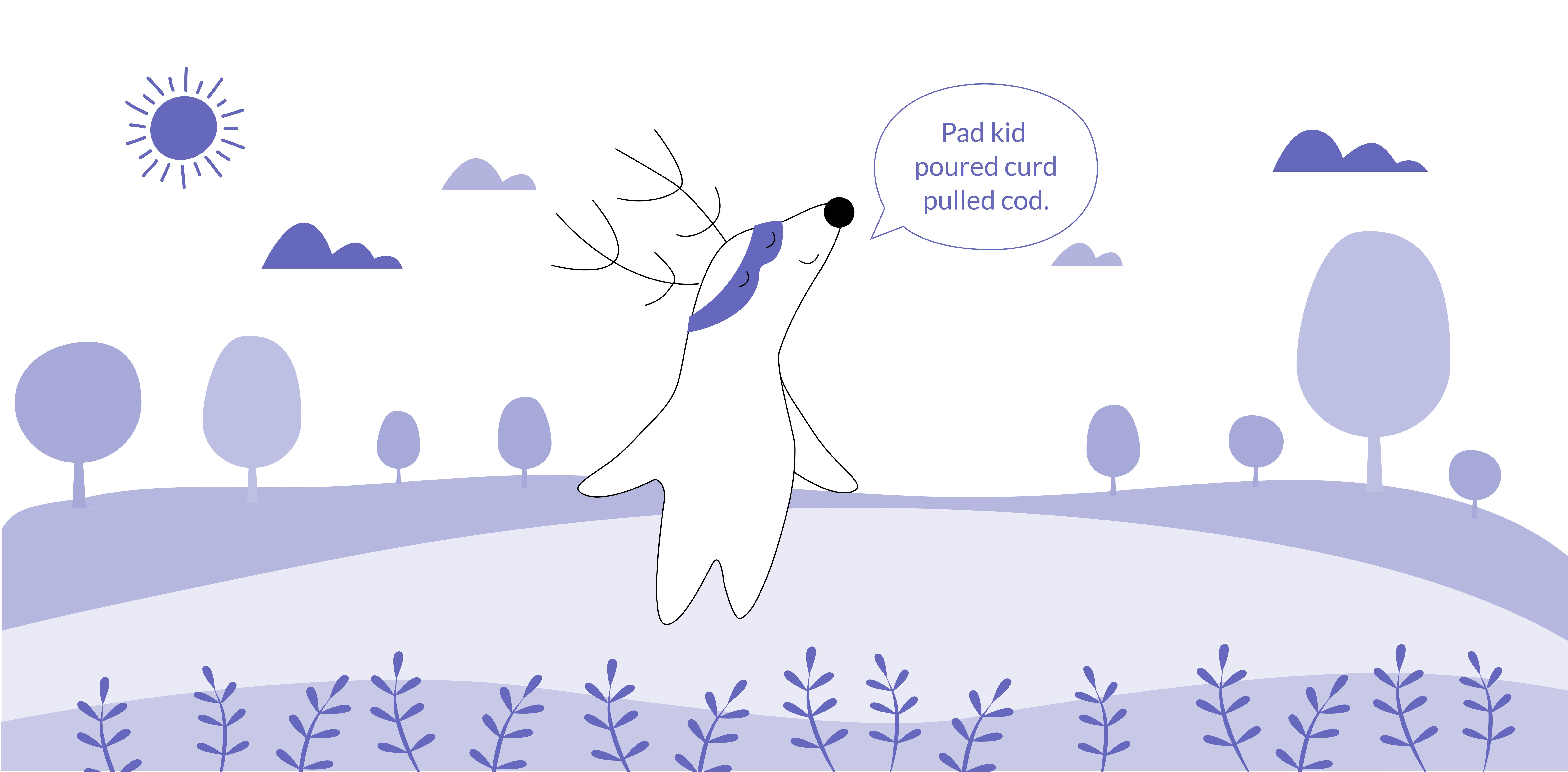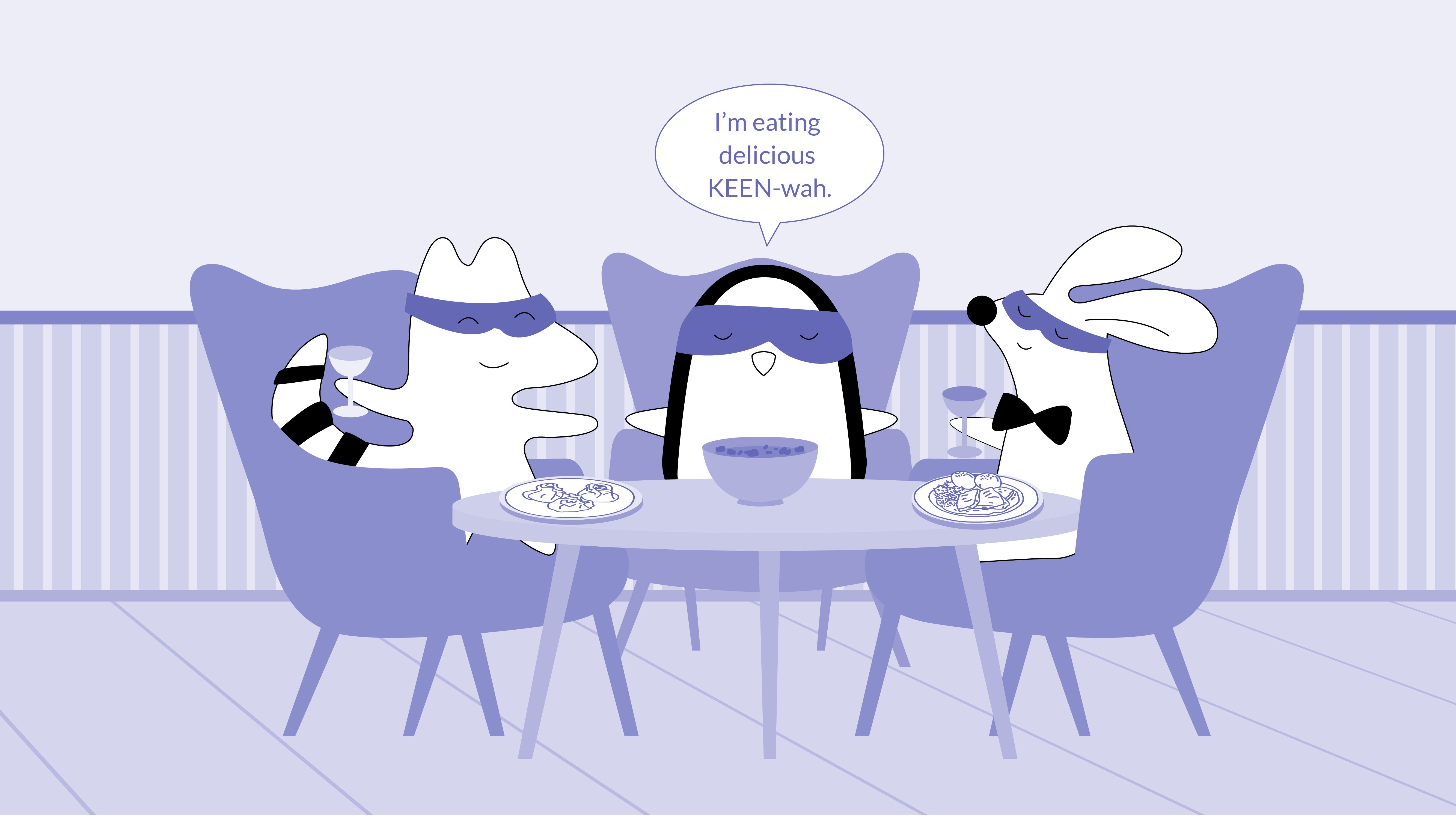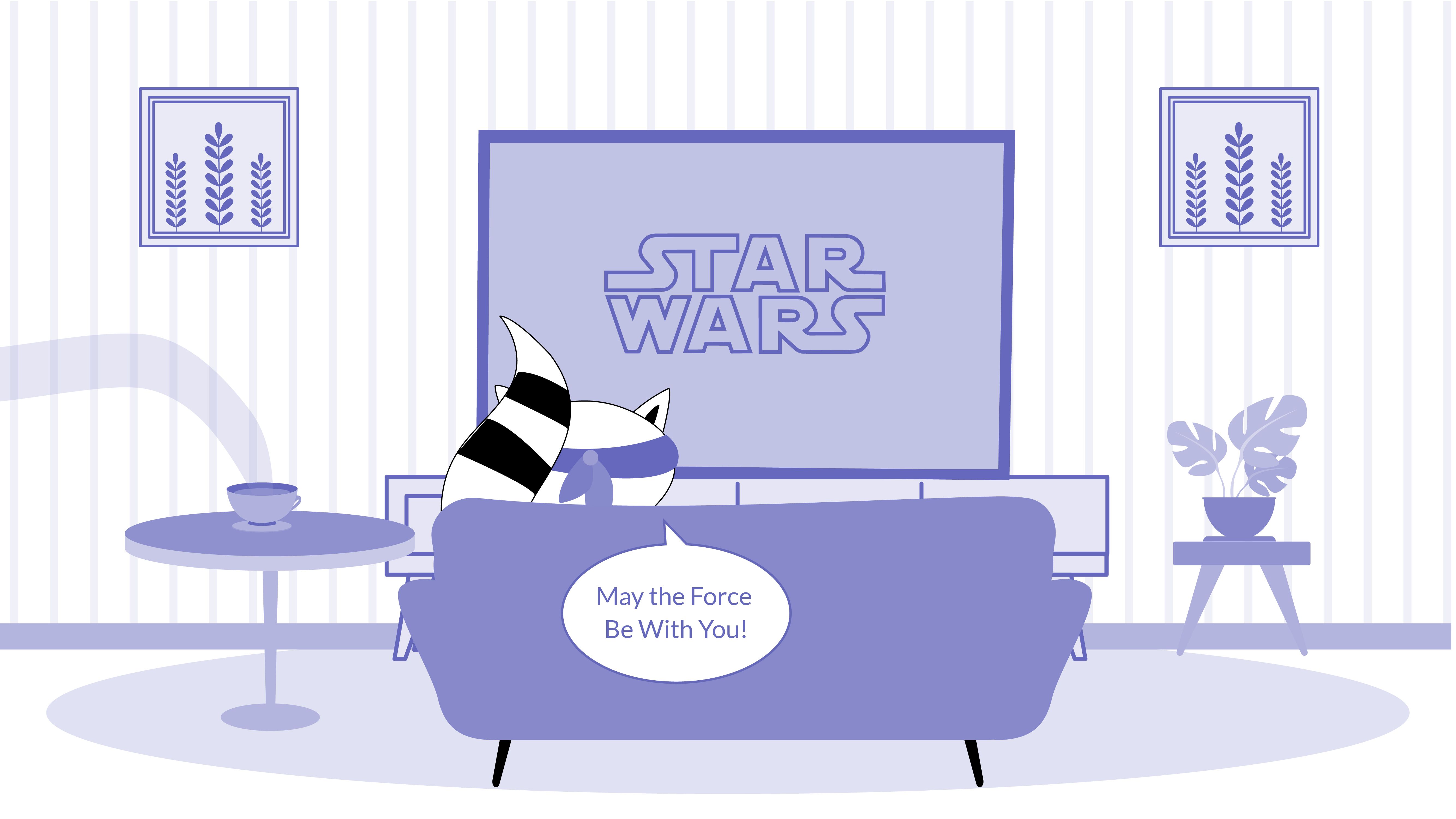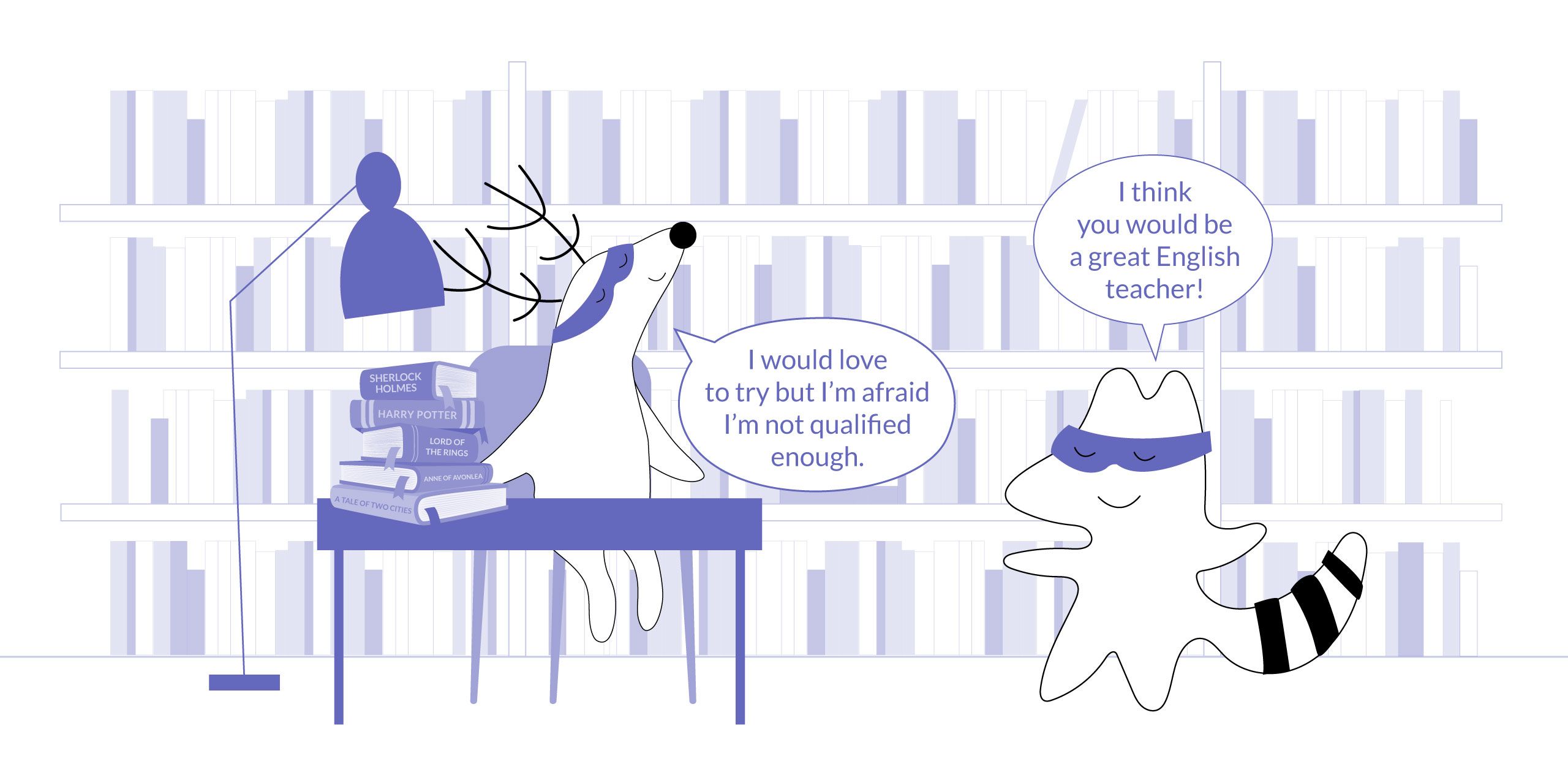
Learning English, but feeling discouraged about your pronunciation? You're not the only one. Let's face it: learning how to correctly pronounce English words is the most difficult part of the journey toward fluency.
Unlike French or Spanish, where the spelling of words directly relates to their pronunciation, English is a bit more complicated.
In technical terms, the relationship between graphemes (letters) and phonemes (sounds) in English is not always consistent. Consequently, both native English speakers and language learners alike can find certain words challenging to pronounce.
So, we have compiled a list of the ten hardest-to-pronounce words in the English language. Ready to start training your tongue?
Learn English with Langster
Why is English Pronunciation so Hard to Learn?
There are some good reasons why English pronunciation is so hard to acquire. Let’s go over the most important ones.
No Exact Correspondence Between Sounds & Letters
English spelling does not always correspond to the pronunciation of a word, which can make it difficult to know how to pronounce a new word just by looking at it.
For example, some letters in English can represent multiple sounds, such as the letter "a," which can be pronounced differently in words like "cat" and "mate." Plus, English words often have silent letters, such as the "b" in "comb" or the "h" in "ghost."
Regional Accents & Dialects
English is spoken in many different countries and regions, each with their own accent and dialect. Someone from the USA will have greatly different pronunciation and intonation than a Scottish person.
This can make it difficult for non-native speakers to understand and imitate the pronunciation of English words.
Stress & Intonation Patterns
Similar to what happens with other languages, English has a complex system of stress and intonation, which can change the meaning of a sentence depending on which words are emphasized and how they are pronounced.
English is a stress-timed language, meaning that stressed syllables are pronounced with more length and intensity than unstressed syllables. Let's take the word "banana" as an example. The stressed syllable is the second (banana) and is much longer than the other two.

In addition, intonation patterns can change the meaning of a sentence or phrase. "I love you" said with a rising tone may be interpreted as a question, while using a falling tone clearly indicates it's a statement.
Non-native speakers may not be used to paying such close attention to stress and intonation and may find it challenging to incorporate these features into their speech.
Limited Exposure to Correct Pronunciation
If you're not a native speaker, you may have this problem: insufficient exposure to the language. This impacts the way you perceive English stress and intonation patterns, possibly leading to challenges in recognizing and reproducing these patterns with precision.
All of these factors can make English pronunciation challenging to learn, but with practice, accurate resources like a language app, and exposure to the language, you'll improve your pronunciation skills in no time!
10 English Words That Are Hard to Pronounce
So, let's cut to the chase, and have a look at the 10 hardest words to pronounce for foreign-language speakers (and how to correctly say them!).
Colonel
This is an old French word that comes from the Middle Ages and is pronounced "ker-nul," even though it doesn't contain an "r" in its spelling.
Mischievous
Another word that comes from French, you should pronounce it "MIS-chiv-us." So, while it has four syllables in writing, it is a three-syllable word in terms of phonetics.
Rendezvous
With a foreign origin and a French pronunciation, this is another difficult word to pronounce. But, we'll give you a tip: the correct pronunciation of "rendezvous" is "RAHN-day-voo."
Draught
Non-native English speakers also have a hard time when pronouncing this term. You may feel inclined to say "drot," but the actual pronunciation of this British word is "draft."
Quinoa
Eating a lot of quinoa but not sure how to pronounce it correctly? This Spanish word has many options, such as "KEEN-wah," "ken-WAH," or "KEN-on-ah."

Sixth
That final "th" sound always complicates things, making it tricky. Just add the same sound as in "thing," and you'll be good to go.
February
Should you say "February" or "Febriuary"? It's up to you, actually: most dictionaries accept this intrusion of "i" before "u."
Onomatopoeia
Words such as buzz, hiss, splash, and meow are all ideal illustrations of onomatopoeia, a linguistic technique that involves naming something by imitating the sound it produces.
Regarding how to pronounce the word itself, you should go for "on-uh-mat-uh-PEE-uh."
Worcestershire
Want to have some delicious Worcestershire sauce, but not really sure how to pronounce it? You're not alone! The correct pronunciation of "Worcestershire" is often debated, but it is commonly pronounced as "WUH-stuhr-shuhr" or "WUH-stuh-sheer."
The first "r" sound is often omitted in the pronunciation.
Deteriorate
Similar to the first "R" sound in "Worcestershire," the initial "R" in "deteriorate" is often not pronounced by many people.
How to Improve Your English Pronunciation?
Wondering how to overcome these problems when speaking in English? Here are some suggestions to improve your pronunciation:
Listen & Imitate
One of the best ways to improve your skills is to listen to native speakers and try to imitate their pronunciation. You can use real-life materials such as movies, TV shows, podcasts, or YouTube videos.

Pay attention to the stress and intonation patterns, as well as the individual sounds and how they are pronounced. Then, try to repeat what you hear, focusing on accuracy and clarity. A mirror can become your best ally when practicing!
Use Pronunciation Resources
There are many specific resources available online to help you improve your pronunciation. The Longman Pronunciation Dictionary, for example, can help you increase your knowledge of phonetic symbols.
Some other popular resources include the websites "Sounds of English" and "Pronunciation Studio." You can also use the Langster app to learn the pronunciation of English words in context.
Practice With Someone
Practicing your pronunciation with a native speaker or a teacher can be very helpful. They can provide feedback on your abilities and help you identify areas where you need to improve.
They can also give you tips on how to produce certain sounds or intonation patterns and provide you with personalized exercises and activities to keep on practicing. If you want to find a language exchange partner or tutor, try looking both online and in your local community.
The Bottom Line
In conclusion, mastering the pronunciation of certain English words can be challenging, but it's important to remember that it's not impossible. With consistent practice, patience, and the right resources, you can significantly improve your English pronunciation skills and eventually sound like a native speaker.

Don't be discouraged by the difficulty of certain words; instead, embrace the challenge, and commit to improving your pronunciation. With time and effort, you'll be able to confidently pronounce even the most challenging English words.









